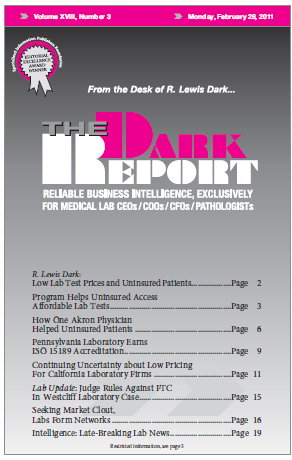CEO SUMMARY: In its ongoing initiative to determine if clinical labs in California have violated the lowest-price regulation, the California Department of Health Care Services is preparing to send out revised letters to as many as 300 laboratory companies in the state. The letters will ask the labs to conduct a self-audit and send the […]
To access this post, you must purchase The Dark Report.


